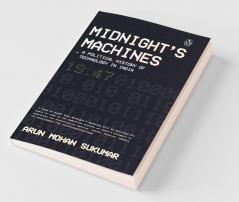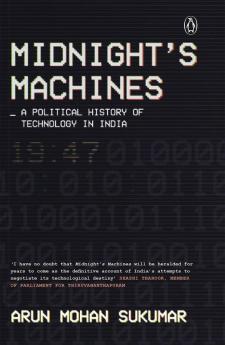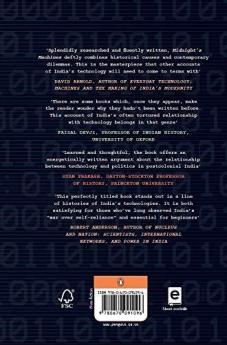This Book is Out of Stock!
English
Hardback
₹698
₹699
0.14% OFF
(All inclusive*)
Delivery Options
*COD & Shipping Charges may apply on certain items.
Review final details at checkout.
Looking to place a bulk order? SUBMIT DETAILS
About The Book
Description
Author
Every Prime Minister of independent India has guided if not personally overseen one prized portfolio: technology. If in the early years Nehru and his scientist-advisors retained an iron grip on it subsequent governments created a bureaucracy that managed everything from the country's crown jewels-its nuclear and space programmes-to solar stoves and mechanized bullock carts.. But a lesser-known political project began on 15 August 1947: the Indian state's undertaking to influence what the citizens thought about technology and its place in society. Beneath its soaring rhetoric on the virtues or vices of technology the state buried a grim reality: India's inability to develop it at home. The political class sent contradictory signals to the general public. On the one hand they were asked to develop a scientific temper on the other to be wary of becoming enslaved to technology; to be thrilled by the spectacle of a space launch while embracing jugaad frugal innovation and the art of 'thinking small'. To mask its failure at building computers the Indian state decried them in the seventies as expensive job-guzzling machines. When it urged citizens to welcome them the next decade the government was unsurprisingly met with fierce resistance. From Jawaharlal Nehru to Narendra Modi India's political leadership has tried its best to modernize the nation through technology but on its own terms and with little success.. In this engaging and panoramic history spanning the arc of modern India from the post-War years to present day Arun Mohan Sukumar gives us the long view with a reasoned occasionally provocative standpoint using a lens that's wide enough for the frame it encompasses. With compelling arguments drawn from archival public records and open-source reportage he unearths the reasons why India embraced or rejected new technologies giving us a new way to understand and appreciate the individual moments that brought the country into the twenty-first century.
*COD & Shipping Charges may apply on certain items.
Review final details at checkout.
₹698
₹699
0% OFF
Hardback
Out Of Stock
All inclusive*
Details
ISBN 13
9780670091096
Publication Date
-14-11-2019
Pages
-123
Weight
-248 grams
Dimensions
-135x216x17.56 mm
Imprint
-Penguin Random House India Pvt.Ltd.














